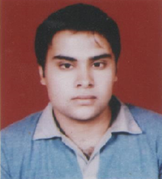Transformative potential of scientific knowledge for the socio-economic development of Nepal

When I think of the progress of scientific knowledge, methods, its applications, and its impact on human well-being flourishing, and quality of life, I make reference to two poets from different historical periods. First of all, let us take the case of 19th-century romantic poet John Keats, who died at the young age of 25 due to tuberculosis. We now have tuberculosis medications and vaccines, but during his romantic period, the great poet could only hope for survival by traveling to a place with a better and more suitable climate for delaying the effects of tuberculosis. Keats, in the hope of better health, also participated in an experimental therapy involving an extreme diet that only caused further bodily deterioration, but considering therapies available during his time, the young poet had no other choice.
We can only speculate on what the poet would have produced if he had survived for another ten years. As the poet wrote in this poem, "Heard melodies are sweet, but those unheard are sweeter," we can argue that his published poem is sweet, and we can only presume that those poems that died with the poet would have also been much sweeter for us readers.
Although the industrial revolution had gained momentum during his lifetime, the medical sciences were still in their formative stages without any substantial scientific knowledge regarding medical procedures for this fatal disease. Therefore, without proper medication, John Keats died early, and just think of those illnesses that would have killed so many of us without any antibiotics or vaccines.
In the 21st century, in contrast to earlier periods in history, due to tremendous progress in medical sciences, both in terms of knowledge accumulation and applications, Australian poet Clive James managed to survive with chronic lymphocytic leukemia and other associated complications for 10 years after his diagnosis. More importantly, before his death at the age of eighty, the last ten years of his life were the most creative, with profound verses on the dimensions of life and death, nostalgia, and mortality.
In this farewell poem, Clive James writes, "A final flood of colors will live on" as my mind dies, "burned by my vision of a world that shone so brightly at the last and then was gone." Life's brightness and colors do fade. With new medications keeping the fragile poet alive and breathing for a decade, he was able to contemplate thoughts in his mind and put them into verses on pages.
Difference between scientific and nonscientific knowledge
Rather ironically, however, in the knowledge domain where these poets belong, in arts, education, and the humanities, the contributions of scientific knowledge and methodologies are not acknowledged as important foundations for social, aesthetic, ethical, intellectual, and cultural progress. Indeed, we have less suffering, violence, pain, misery, and needless deaths due to scientific progress and achievements.
Moreover, with the populism of postmodern theories and the interpretivism paradigm in various departments of Nepalese universities, the scientific relevance of an objective standard for truth has been reduced to just another interpretation. However, it is important to realize that due to its subjective, anecdotal, particularized, contextual, and interpretive characteristics, the knowledge generated using nonscientific research methods has very limited applied value, outcome orientations, or implications for problem-solving.
Whereas scientific knowledge accumulated through evidence, data, and observations have applied value and transformative implications for society and its individuals; for example, antibiotics heal, airplanes fly, the internet uploads, mobile phones connect, vaccines save millions of lives, innovations create jobs, industrial expansions propel economic growth, and diabetes medicines maintain sugar levels. Indeed, scientific discoveries have enhanced the overall quality of human life and significantly contributed to the social, economic, and ethical progress of society.
Transformative Impact of Scientific Knowledge
Considering the Nepalese context, take the example of Mahabir Pun and his initiation of the National Innovation Center, where different scientific tools and techniques are extensively used to solve various medical, connectivity, and industrial problems prevalent in our society through innovation, production modifications, and enhancements, and the application of different technologies. At this innovation center, the application of scientific knowledge results in the development of problem-solving tools and techniques with implications for Nepalese society.
Similarly, Dr. Sanduk Ruit has restored the sight of thousands of people with his scientific innovation of inexpensive intraocular lenses that revolutionized cataract surgery, especially for low-income people in developing countries. Here, the methodical approach involved in engaging with a particular problem is not just limited to explanation, interpretation, or analysis; rather, the main focus is to develop efficient tools and techniques that can be applied to solve social, economic, or medical problems.
In the knowledge economy of the 21st century, scientific knowledge, tools, and technologies have become foundational tools for solving problems. These are the times when industrial development, product development, entrepreneurial ventures, agriculture, and the education sector all depend upon and derive their efficacy, efficiency, and effectiveness from the progress in scientific tools and technologies. As a result, socioeconomic problems prevalent in Nepalese society cannot be solved effectively and efficiently in the absence of scientific innovation. Besides, those societies that lack scientific knowledge also fall behind in socio-economic indicators and are becoming more dependent on foreign countries for development projects.
As cognitive scientist Steven Pinker indicates, values of reason and science have brought about tremendous progress in the overall health index, life extension, economic prosperity, safety, personal flourishing, and social well-being. Consider how short, difficult, and hopeless a human life would have been without the advancement of scientific knowledge; a simple infection would be fatal without the proper dose of antibiotics. Thanks to enormous advances in scientific knowledge, even without specific contributions from its own society, Nepal is better than ever before.
As a result, Nepalese society needs to recognize the transformative potential of scientific knowledge for its socio-economic development and also appreciate, acknowledge, encourage, and support a scientific mindset, observations, experiments, innovations, and policies based on scientific research.




Leave Comment